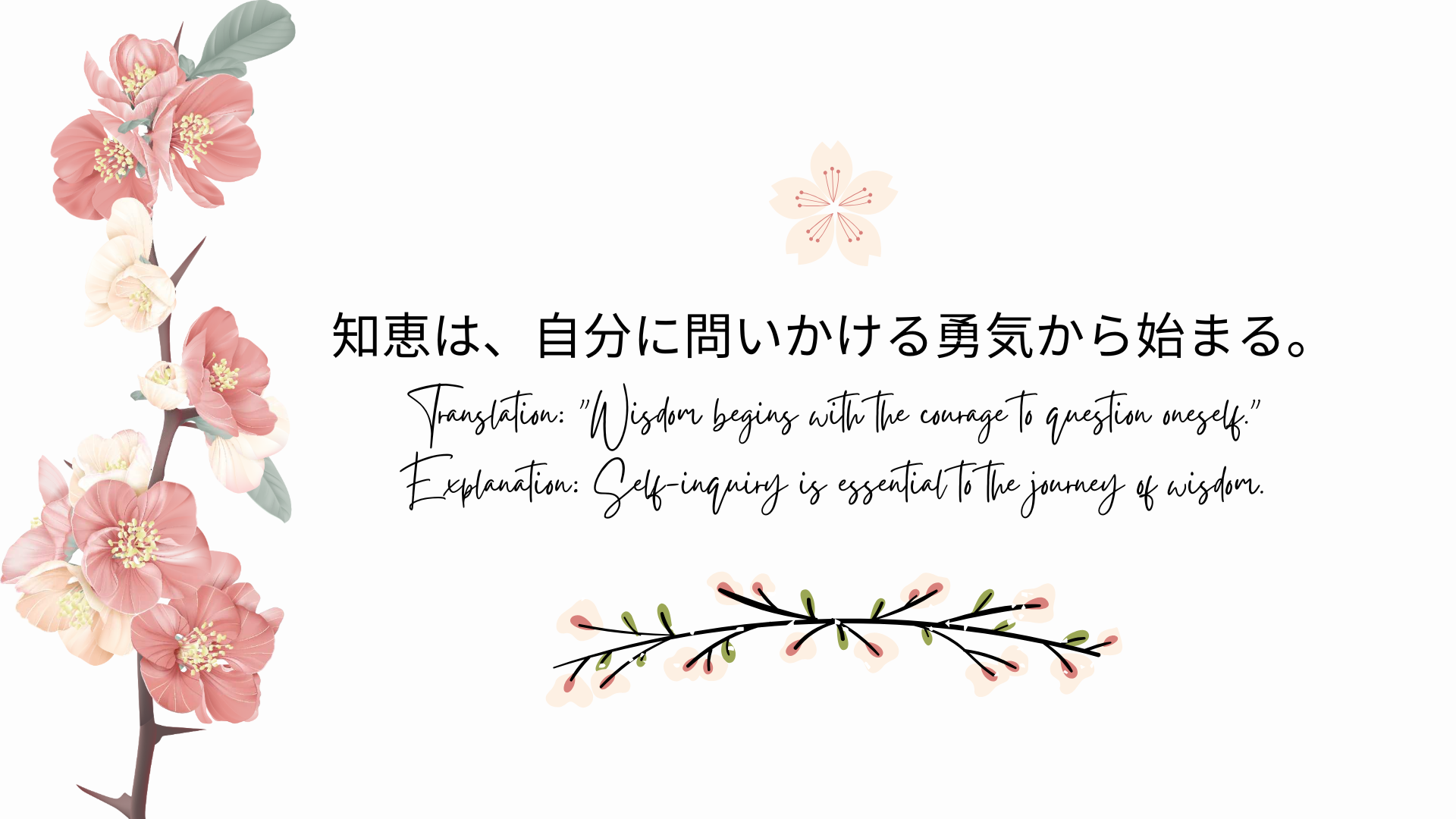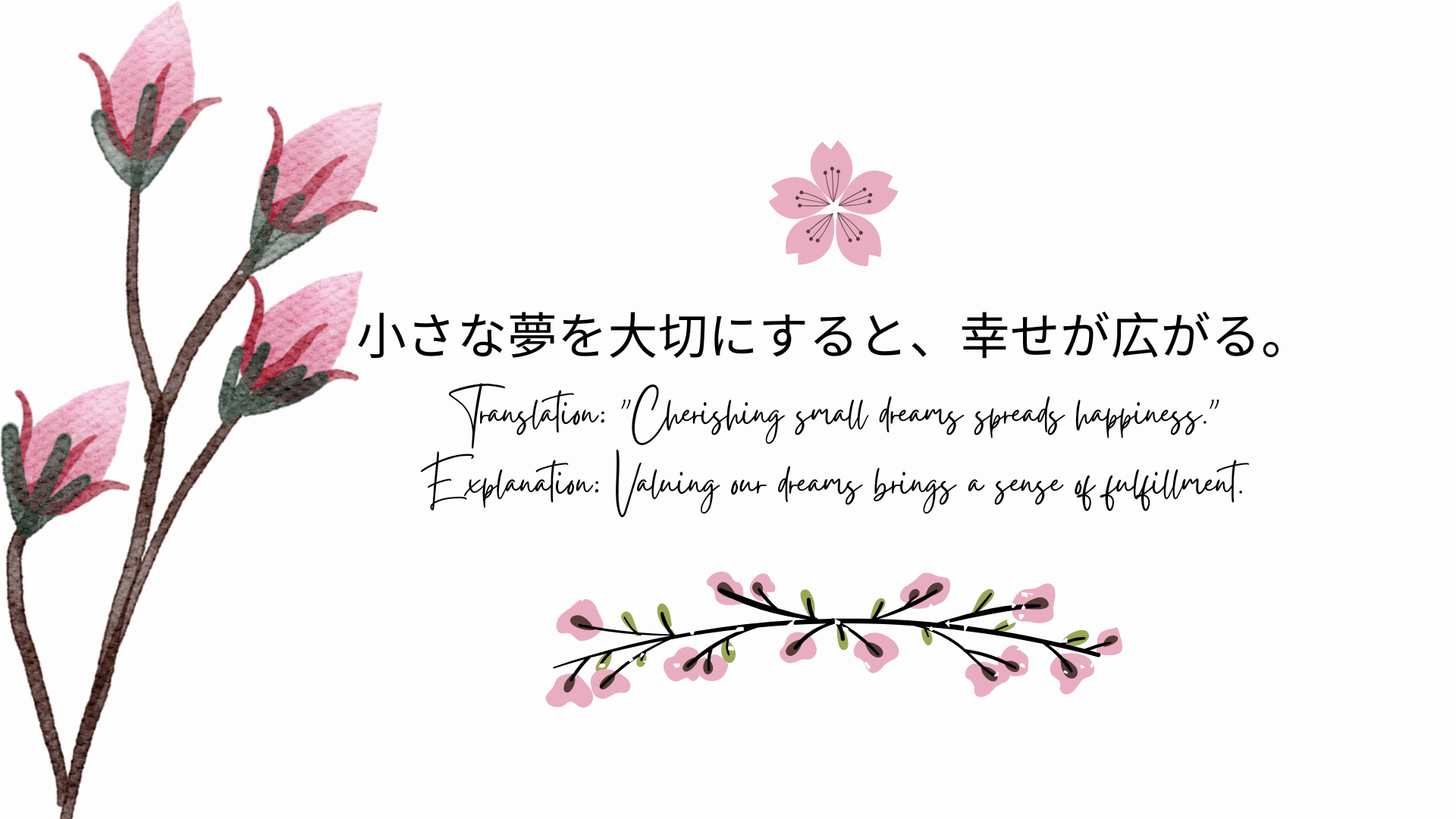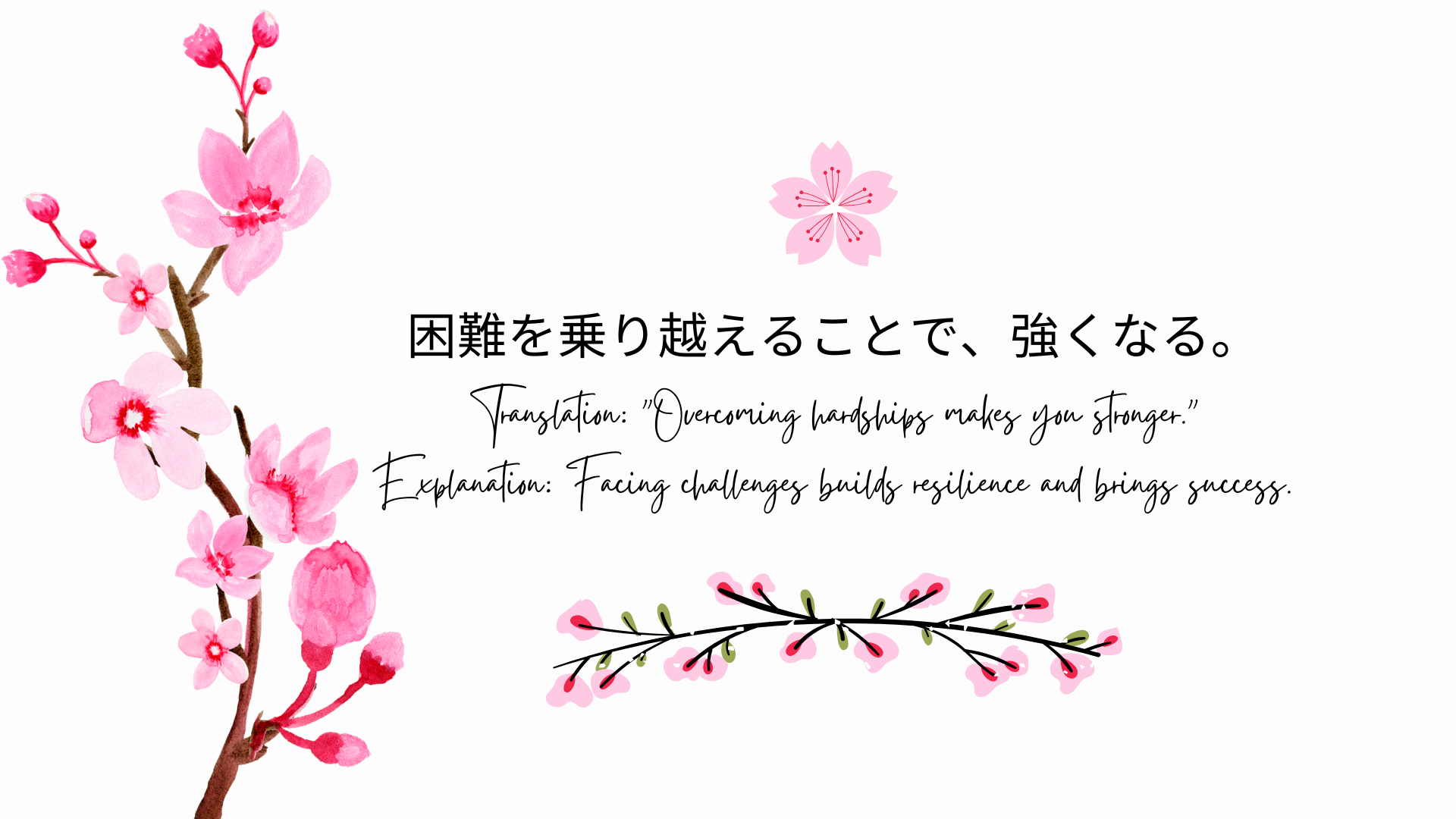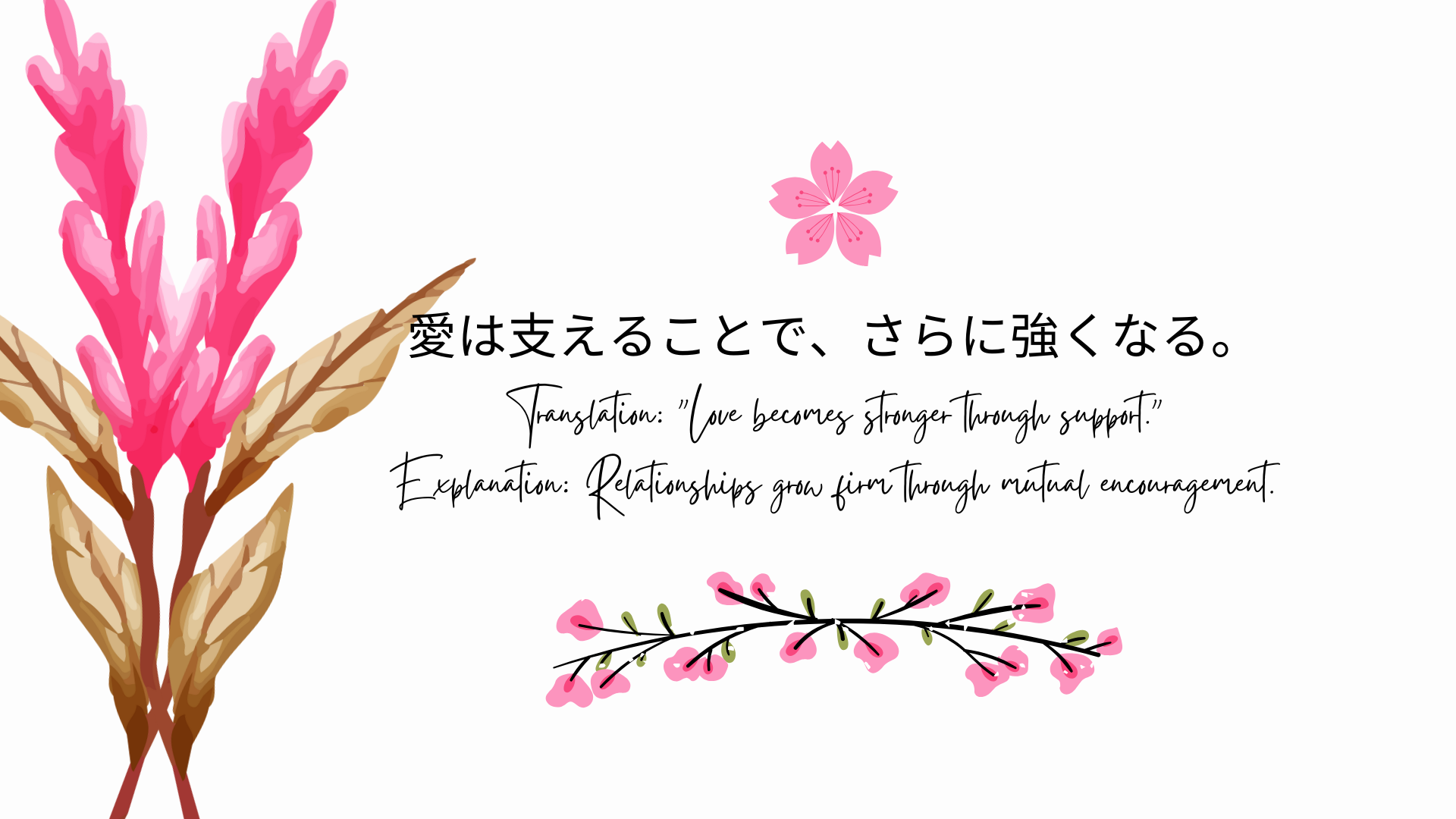The book ‘111+ Popular Japanese Quotes and Sayings [with English Translations]’ is a powerful tool that shares Japan’s timeless wisdom. These sayings, rich with history, show us the depth of Japanese culture and teach practical life lessons. If you’re interested in Japanese philosophy or looking for advice in simple, wise words, this collection sheds light on important ideas. As we dive into these sayings, think about how they can guide our choices today and improve our relationships with others.
Understanding Japanese Proverbs and Sayings
So, let’s dive a bit deeper into Japanese proverbs or kotowaza. These sayings pack a lot of traditional wisdom, ethics, and cultural values into just a few words. They use metaphors to teach life lessons or moral points, showing us a glimpse of Japan’s collective thoughts and societal standards, both from the past and today.
Japanese Quotes and Sayings
Japanese quotes and sayings are full of wisdom about life. They touch on knowledge, happiness, success, and relationships. These phrases show the values and ideas shaped by Japan’s long history and culture. When we look into these sayings, we really get to understand what guides everyday life and personal growth in Japan.
Wisdom and Knowledge Quotes And Sayings
Japanese proverbs give us a clear look into what’s important in their culture. They talk about knowing yourself, keeping at it, and working hard. These old sayings help us see how individual growth and what society expects are woven into Japan’s history. They’re short but packed with lessons from the past.
- 学び続ける心が、知恵の源です。
Translation: “A heart that keeps learning is the source of wisdom.”
Explanation: True wisdom grows when we remain open and willing to learn throughout life. - 知恵は川のように流れ、尽きることはない。
Translation: “Wisdom flows like a river and never runs dry.”
Explanation: Wisdom is abundant and endless, continuously replenished like a flowing river. - 言葉にしない知識こそが、真の知恵です。
Translation: “The knowledge left unspoken is true wisdom.”
Explanation: Sometimes, what we keep within is the deepest knowledge. - 学ぶことをやめると、成長も止まる。
Translation: “If you stop learning, you stop growing.”
Explanation: Lifelong learning is essential for personal growth. - 知恵は見えない光、心を照らすもの。
Translation: “Wisdom is an invisible light that illuminates the heart.”
Explanation: Wisdom may be intangible, but it brightens our inner selves. - 本当の知識は、使わないと無駄になる。
Translation: “True knowledge is wasted if not used.”
Explanation: Knowledge gains value through practical application. - 知恵は時間とともに熟す果実のよう。
Translation: “Wisdom is like fruit that ripens with time.”
Explanation: Wisdom matures and becomes richer with life experience.
- 静寂の中にこそ、深い知恵が宿る。
Translation: “In silence, deep wisdom resides.”
Explanation: Quiet moments bring insight that can’t be found in noise. - 知識は荷物、知恵は光。
Translation: “Knowledge is a burden, wisdom is light.”
Explanation: Knowledge alone can weigh us down, but wisdom uplifts. - 疑問を持つ心が、知恵への第一歩。
Translation: “A questioning heart is the first step to wisdom.”
Explanation: Curiosity drives us to seek deeper understanding. - 真の知恵は、言葉では伝えられない。
Translation: “True wisdom cannot be expressed in words.”
Explanation: Wisdom is often felt or understood, beyond simple language. - 学びの種が、知恵の木を育てる。
Translation: “The seeds of learning grow the tree of wisdom.”
Explanation: Knowledge builds over time to form a solid foundation of wisdom. - 知識は道具、知恵は使い方を知ること。
Translation: “Knowledge is a tool; wisdom is knowing how to use it.”
Explanation: Wisdom is about applying knowledge effectively. - 本物の知恵は、無欲から生まれる。
Translation: “True wisdom is born from selflessness.”
Explanation: Wisdom grows when we move beyond our own desires. - 知恵の道は険しいが、そこに価値がある。
Translation: “The path of wisdom is steep, but worth the journey.”
Explanation: True understanding requires effort, making it valuable. - 知識を得ることは簡単、知恵にするは難しい。
Translation: “Gaining knowledge is easy; turning it into wisdom is hard.”
Explanation: Learning facts is simple, but understanding their meaning is challenging. - 知恵は教えることなく、気づかせるもの。
Translation: “Wisdom does not teach; it makes one realize.”
Explanation: Wisdom guides us to self-discovery rather than providing answers. - 知識を積むだけでは、知恵は生まれない。
Translation: “Accumulating knowledge alone does not create wisdom.”
Explanation: Knowledge requires reflection to become wisdom. - 失敗から学ぶのが、知恵の証です。
Translation: “Learning from failure is a mark of wisdom.”
Explanation: Wisdom is gained by recognizing the lessons in our mistakes. - 知恵は教わるものではなく、感じるもの。
Translation: “Wisdom is not taught; it is felt.”
Explanation: Wisdom is more intuitive than learned through instruction. - 知恵の本質は、他者を理解する心にある。
Translation: “The essence of wisdom lies in understanding others.”
Explanation: True wisdom includes empathy and compassion. - 知識を疑う心が、知恵を育てる。
Translation: “A mind that doubts knowledge grows wisdom.”
Explanation: Questioning what we know leads to deeper insight. - 心を開くと、知恵は自然に訪れる。
Translation: “When you open your heart, wisdom comes naturally.”
Explanation: Openness allows wisdom to enter effortlessly. - 知恵を求めるには、まず自分を知ること。
Translation: “To seek wisdom, first know yourself.”
Explanation: Self-understanding is the foundation of true wisdom. - 知識は見えるもの、知恵は感じるもの。
Translation: “Knowledge is seen; wisdom is felt.”
Explanation: Knowledge is external, while wisdom resonates within. - 知恵は、自分に問いかける勇気から始まる。
Translation: “Wisdom begins with the courage to question oneself.”
Explanation: Self-inquiry is essential to the journey of wisdom.
- 知恵は流れる川のように、静かに育つ。
Translation: “Wisdom grows quietly, like a flowing river.”
Explanation: True wisdom develops gradually and steadily. - 深い知恵は、少ない言葉に宿る。
Translation: “Deep wisdom lies in few words.”
Explanation: Wisdom is often expressed simply and concisely. - 知恵を得るには、まず静寂を学ぶ。
Translation: “To gain wisdom, first learn silence.”
Explanation: Wisdom is born in stillness and reflection. - 真の知恵は、自らの弱さを知ること。
Translation: “True wisdom is knowing one’s own weaknesses.”
Explanation: Acknowledging our limitations is a sign of inner strength and wisdom.
Life and Happiness Quotes And Sayings
When you look into Japanese quotes about life and happiness, you see what they truly value and think. Take the saying ‘花より団子’ (Hana yori dango), for example. It means ‘dumplings over flowers,’ suggesting that it’s better to focus on practical things, like food, rather than just pretty things like flowers. This shows a down-to-earth approach to life. It tells us that caring for basic needs might be more important for happiness than enjoying fleeting beauty. It’s an interesting take on how to find joy, isn’t it?
- 幸せは、心の中にある種です。
Translation: “Happiness is a seed within the heart.”
Explanation: Happiness begins within ourselves; it’s something we nurture internally. - 人生は一瞬一瞬を楽しむこと。
Translation: “Life is about enjoying each moment.”
Explanation: True happiness is found in embracing each present moment. - 心が豊かであれば、人生も豊かになる。
Translation: “If your heart is rich, life becomes rich.”
Explanation: A full heart leads to a fulfilling life. - 幸せは、求めるものではなく感じるもの。
Translation: “Happiness is not something you seek, but something you feel.”
Explanation: Happiness is about feeling content rather than endlessly searching. - 苦しみを越えて、喜びが訪れる。
Translation: “After overcoming hardship, joy arrives.”
Explanation: True happiness often comes after facing challenges. - 人生は旅、幸せはその道連れ。
Translation: “Life is a journey, and happiness is a companion.”
Explanation: Happiness walks alongside us through life.
- 小さな喜びが、人生を照らす光になる。
Translation: “Small joys become the light that brightens life.”
Explanation: Simple pleasures bring lasting brightness to our lives. - 笑顔は、心を温める太陽です。
Translation: “A smile is the sun that warms the heart.”
Explanation: Smiling brings warmth and happiness to ourselves and others. - 幸せは、毎日の中に隠れている。
Translation: “Happiness is hidden in everyday life.”
Explanation: Ordinary moments hold the key to true happiness. - 人生は短い、今を楽しもう。
Translation: “Life is short, let’s enjoy the now.”
Explanation: Life is fleeting, so we should appreciate the present. - 心の平和が、真の幸福への道。
Translation: “Peace of mind is the path to true happiness.”
Explanation: Inner calm is essential for genuine happiness. - 幸せは感謝の心から生まれる。
Translation: “Happiness is born from a grateful heart.”
Explanation: Gratitude leads to lasting happiness. - 心が喜べば、人生も喜ぶ。
Translation: “When the heart is joyful, life becomes joyful.”
Explanation: Our inner happiness transforms how we experience life. - 幸せは遠くにあるものではない。
Translation: “Happiness is not something far away.”
Explanation: Happiness is often closer than we think. - 幸せとは、小さな奇跡に気づくこと。
Translation: “Happiness is noticing the little miracles.”
Explanation: Being aware of life’s small wonders brings joy. - 人生に意味を持たせるのは、自分の心。
Translation: “It is your own heart that gives life meaning.”
Explanation: Happiness in life is shaped by our inner perspective. - 一日の終わりに、心が安らげばそれが幸せ。
Translation: “At the end of the day, if your heart is at peace, that is happiness.”
Explanation: Peace at the day’s end is the truest happiness. - 過去に囚われず、未来を恐れず、今を生きる。
Translation: “Don’t be trapped by the past, nor fear the future; live in the now.”
Explanation: Happiness comes from freeing ourselves from past and future worries. - 幸せは与えることで増えるもの。
Translation: “Happiness grows by giving.”
Explanation: Sharing joy with others multiplies our own happiness. - 心が軽やかであれば、人生も軽やか。
Translation: “If your heart is light, life is light.”
Explanation: A joyful heart makes life feel easier. - 心の中の平和が、幸せの源です。
Translation: “Inner peace is the source of happiness.”
Explanation: A peaceful mind is the foundation of true happiness. - 幸せは今ここに、ただそれを感じるだけ。
Translation: “Happiness is here and now; all we need is to feel it.”
Explanation: Happiness exists in the present if we choose to embrace it. - 人生は波のよう、幸せも波に乗ってやってくる。
Translation: “Life is like waves, and happiness rides the waves too.”
Explanation: Happiness ebbs and flows, just like waves in life. - 小さな夢を大切にすると、幸せが広がる。
Translation: “Cherishing small dreams spreads happiness.”
Explanation: Valuing our dreams brings a sense of fulfillment.
- 感謝の気持ちが、心を豊かにする。
Translation: “Gratitude enriches the heart.”
Explanation: Being thankful adds depth and happiness to life. - 幸せは、他人と比べることなく見つけるもの。
Translation: “Happiness is found without comparing to others.”
Explanation: True happiness is independent of comparisons. - 心を開けば、幸せが自然に流れ込む。
Translation: “When the heart is open, happiness flows naturally.”
Explanation: Openness to life invites happiness in. - 人生は一度きり、幸せを選ぼう。
Translation: “Life is only once, so choose happiness.”
Explanation: Since life is short, it’s important to seek happiness. - 幸せの鍵は、心の柔らかさにある。
Translation: “The key to happiness lies in a gentle heart.”
Explanation: A kind, soft heart finds happiness more easily. - 本当の幸せは、心の中にある光。
Translation: “True happiness is the light within the heart.”
Explanation: Happiness is like an inner light that guides us.
Also Read: How To Say “Hello” In Japanese: 21+ Unique Japanese Greetings
Success and Perseverance Quotes And Sayings
In Japanese culture, not only is it important to find everyday happiness, but there’s also a strong focus on achieving success through hard work and not giving up. You’ll find this idea in many traditional sayings. For example, one saying goes, ‘Effort never betrays you,’ which means if you keep working hard, it will pay off. These proverbs really emphasize how much value is placed on dedication and bouncing back from setbacks.
- 成功は、諦めない心の中にある。
Translation: “Success lies within a heart that does not give up.”
Explanation: Perseverance is the foundation of success. - 小さな一歩が、大きな成果を生む。
Translation: “A small step leads to great results.”
Explanation: Success starts with small actions that build over time. - 失敗は成功の種です。
Translation: “Failure is the seed of success.”
Explanation: Mistakes and failures provide lessons that lead to future success. - 苦しい時こそ、成長の時です。
Translation: “Times of hardship are times of growth.”
Explanation: Challenges make us stronger and bring us closer to success. - 山を登るには、一歩ずつ進むこと。
Translation: “To climb a mountain, take one step at a time.”
Explanation: Success is achieved gradually, one step at a time. - 成功は、努力を続けた者に微笑む。
Translation: “Success smiles upon those who keep trying.”
Explanation: Persistence brings rewards. - 成功とは、挑戦をやめないこと。
Translation: “Success is never stopping the challenge.”
Explanation: Success is found by continuously pushing forward.
- 諦める前に、もう一歩進んでみよう。
Translation: “Before giving up, take one more step.”
Explanation: Success may be closer than you think if you keep going. - 強い心が、成功への道を切り開く。
Translation: “A strong heart paves the way to success.”
Explanation: Inner strength and resilience are key to achieving goals. - 失敗を恐れずに、前を向こう。
Translation: “Face forward without fear of failure.”
Explanation: Success comes when we’re willing to move forward despite risks. - 目標は高く、足はしっかり地に。
Translation: “Set high goals, but keep your feet on the ground.”
Explanation: Aim high but stay grounded in reality to achieve success. - 忍耐が、夢を現実に変える。
Translation: “Patience turns dreams into reality.”
Explanation: Success often requires patience and enduring effort. - 道が険しくても、歩き続ければ必ず道が開く。
Translation: “Even if the path is steep, keep walking and it will open.”
Explanation: Perseverance eventually leads to new opportunities. - 一度の失敗で、希望を捨ててはいけない。
Translation: “Don’t lose hope from a single failure.”
Explanation: Success often requires multiple attempts and resilience. - 今日の努力が、明日の成功を呼ぶ。
Translation: “Today’s effort brings tomorrow’s success.”
Explanation: Hard work now leads to rewards in the future. - 夢を追いかけ続ける心が、成功を引き寄せる。
Translation: “A heart that keeps chasing dreams attracts success.”
Explanation: Pursuing dreams with passion brings success closer. - 石の上にも三年の心で進む。
Translation: “Move forward with a ‘three years on a rock’ mindset.”
Explanation: Patience and perseverance pay off, even if it takes a long time. - 強い意志があれば、不可能はない。
Translation: “With strong will, nothing is impossible.”
Explanation: Determination makes even the hardest goals achievable. - 諦めない者だけが、真の成功を知る。
Translation: “Only those who don’t give up know true success.”
Explanation: Success is reserved for those who persist despite challenges. - 一歩ずつでも、必ずゴールにたどり着く。
Translation: “Even one step at a time, you will reach the goal.”
Explanation: Success can be achieved slowly but surely. - 成功への鍵は、自分を信じること。
Translation: “The key to success is believing in yourself.”
Explanation: Self-confidence is essential in achieving success. - 困難を乗り越えることで、強くなる。
Translation: “Overcoming hardships makes you stronger.”
Explanation: Facing challenges builds resilience and brings success.
- 不屈の心が、道を切り開く。
Translation: “An unbreakable spirit opens paths.”
Explanation: A resilient mindset creates new opportunities for success. - 汗と涙が、成功への道標となる。
Translation: “Sweat and tears are the signposts to success.”
Explanation: Hard work and struggles guide us toward success. - 努力を続ける者には、必ず報いがある。
Translation: “Those who keep working hard are always rewarded.”
Explanation: Consistent effort brings eventual success. - 成功は遠くにあるものではなく、自分の手の中にある。
Translation: “Success is not far away; it’s within your own hands.”
Explanation: Success is achievable and often closer than we imagine. - 途中で諦めずに、最後までやり遂げる勇気を持つ。
Translation: “Have the courage to finish without giving up.”
Explanation: Success requires the bravery to see things through. - 失敗を繰り返すことで、成功に近づく。
Translation: “By repeating failures, you get closer to success.”
Explanation: Learning from each failure brings us closer to achieving our goals. - 努力が報われる時を信じよう。
Translation: “Believe in the time when your efforts will be rewarded.”
Explanation: Trust that hard work will eventually bring success. - 夢を持つ心が、道を切り開く力となる。
Translation: “A heart with dreams has the power to open paths.”
Explanation: Dreams fuel our journey toward success and create new possibilities.
Love and Relationships Quotes And Sayings
Japanese sayings give us real wisdom about love and relationships, showing us how complex and life-changing they can be. Take phrases like ‘Love is blind’ and ‘To fall in love.’ These sayings remind us that love can make us overlook flaws and that falling in love, while wonderful, can also throw us into emotional turmoil. Both ideas tell us that love has its ups and downs, but it’s always a profound part of life.
- 愛は、言葉を越える心の絆です。
Translation: “Love is a bond of the heart that goes beyond words.”
Explanation: True love connects hearts deeply, even without words. - 愛は、相手を思いやる心から始まる。
Translation: “Love begins with a caring heart.”
Explanation: Genuine love grows from a place of kindness and empathy. - 大切な人との時間は、心を満たす宝です。
Translation: “Time with loved ones is a treasure that fills the heart.”
Explanation: Moments spent with those we cherish bring true fulfillment. - 愛は、相手を自由にすることでもある。
Translation: “Love is also about giving freedom to the other.”
Explanation: Real love allows people to be themselves without constraints. - 愛は、理解し合う心の旅です。
Translation: “Love is a journey of understanding each other’s hearts.”
Explanation: Love grows as we seek to truly understand one another. - 思い出は愛の証、心に刻まれる。
Translation: “Memories are proof of love, engraved in the heart.”
Explanation: Precious memories serve as reminders of deep love. - 相手の幸せを願う心が、本当の愛です。
Translation: “True love is wishing for the other’s happiness.”
Explanation: Genuine love is selfless, always wanting the best for the other. - 愛の言葉は少なくても、行動が語る。
Translation: “Even with few words, actions speak of love.”
Explanation: Loving actions are often more powerful than spoken words. - 愛は、心の中で静かに輝く光。
Translation: “Love is a quiet light shining within the heart.”
Explanation: Love doesn’t always need to be loud; it can be a gentle, steady presence. - 愛する人を信じることが、関係を育てる。
Translation: “Trusting the one you love nurtures the relationship.”
Explanation: Trust is essential in helping relationships grow strong.
- 愛は二人で築く美しい絆。
Translation: “Love is a beautiful bond built by two.”
Explanation: Relationships are created together, with both people contributing. - 愛は心の中で深く根を張るもの。
Translation: “Love grows deep roots within the heart.”
Explanation: True love is deeply rooted and remains strong through time. - 愛する人の笑顔が、心を癒す薬です。
Translation: “The smile of a loved one is a balm that heals the heart.”
Explanation: A loved one’s happiness brings comfort and healing. - 愛は互いに支え合うことから生まれる。
Translation: “Love is born from supporting each other.”
Explanation: Relationships grow stronger through mutual support and care. - 愛は、欠点も美しく思える心の力。
Translation: “Love is the strength to see beauty even in flaws.”
Explanation: Love lets us appreciate the whole person, imperfections included. - 一緒に過ごす時間が、愛の証です。
Translation: “The time spent together is proof of love.”
Explanation: Time devoted to each other shows the depth of one’s love. - 愛は、相手を理解しようとする努力です。
Translation: “Love is the effort to understand the other.”
Explanation: Love includes a willingness to see things from the other person’s perspective. - 愛する人がいることで、人生が豊かになる。
Translation: “Life becomes richer with a loved one.”
Explanation: Having someone to love brings meaning and joy to life. - 愛は、相手を尊重する心から生まれる。
Translation: “Love comes from a heart that respects the other.”
Explanation: Respect is the foundation of genuine love. - 愛は変わることなく、ただ育っていくもの。
Translation: “Love doesn’t change; it only grows.”
Explanation: True love deepens over time, even as it remains steady. - 愛は心を豊かにし、魂を満たすもの。
Translation: “Love enriches the heart and fills the soul.”
Explanation: Love provides deep emotional and spiritual fulfillment. - 遠く離れても、心はいつもそばにいる。
Translation: “Even far apart, the heart is always near.”
Explanation: Physical distance doesn’t lessen the closeness of true love. - 愛は与えることによって、さらに深まる。
Translation: “Love deepens through giving.”
Explanation: Love grows stronger as we give of ourselves to others. - 愛は心の中で響き続ける音楽。
Translation: “Love is music that resonates in the heart.”
Explanation: Love is a beautiful, constant feeling within us. - 愛は支えることで、さらに強くなる。
Translation: “Love becomes stronger through support.”
Explanation: Relationships grow firm through mutual encouragement.
- 愛は、相手を変えようとせず、受け入れること。
Translation: “Love is accepting without trying to change the other.”
Explanation: True love respects and embraces the other’s true self. - 愛は瞬間で感じ、永遠に続くもの。
Translation: “Love is felt in a moment, yet lasts forever.”
Explanation: The feeling of love may begin in an instant but endures across time. - 愛する人といることで、自分が強くなれる。
Translation: “Being with a loved one makes you stronger.”
Explanation: Love brings strength and resilience. - 愛は目に見えないが、心にはっきりと映る。
Translation: “Love is invisible but clearly reflected in the heart.”
Explanation: Love may not be visible, but its impact on the heart is undeniable. - 愛は互いのために成長し合うことです。
Translation: “Love is growing together for each other.”
Explanation: In true love, both people grow and improve together.
Also Read: 15 Most Popular Japanese Cartoons for Japanese Learners [Series and Movies]
Popular Japanese Proverbs and Their Meanings
What can we learn from the wisdom in popular Japanese proverbs?
These short sayings give us a peek into cultural values, moral advice, and simple life tips.
Take ‘Fall down seven times, stand up eight’ – it’s all about not giving up.
And ‘Three years on a stone’ teaches us about the value of patience and sticking it out.
Each proverb is like a little lesson on life’s challenges and how to handle them.
- 猿も木から落ちる (Saru mo ki kara ochiru) – “Even monkeys fall from trees.” Meaning: Even experts make mistakes; nobody’s perfect.
- 七転び八起き (Nanakorobi yaoki) – “Fall seven times, get up eight.” Meaning: Resilience is key; keep trying no matter how many times you fail.
- 花より団子 (Hana yori dango) – “Dumplings over flowers.” Meaning: Practicality over aesthetics; prefer substance over appearance.
- 出る釘は打たれる (Deru kugi wa utareru) – “The nail that sticks out gets hammered down.” Meaning: Standing out might attract criticism or pressure to conform.
- 旅の恥はかき捨て (Tabi no haji wa kakisute) – “Leave shame behind on a journey.” Meaning: On an adventure, you’re free to explore without worrying too much about social norms or judgments.
- 井の中の蛙大海を知らず (I no naka no kawazu taikai wo shirazu) – “A frog in a well does not know the ocean.” Meaning: Someone with limited experiences may not understand the broader world.
- 石の上にも三年 (Ishi no ue ni mo sannen) – “Sit on a rock for three years.” Meaning: Patience and perseverance can bring success.

- 蛙の子は蛙 (Kaeru no ko wa kaeru) – “A frog’s child is a frog.” Meaning: Like father, like son; children often resemble their parents in nature or behavior.
- 百聞は一見に如かず (Hyakubun wa ikken ni shikazu) – “Seeing once is better than hearing a hundred times.” Meaning: Experience is more valuable than hearsay; seeing is believing.
- 二兎を追う者は一兎をも得ず (Nito wo oumono wa itto wo mo ezu) – “He who chases two rabbits catches neither.” Meaning: Focus on one thing at a time; multitasking can lead to failure.
- 雨降って地固まる (Ame futte ji katamaru) – “After rain, the ground hardens.” Meaning: Adversity strengthens us, like challenges that solidify character.
- 虎穴に入らずんば虎子を得ず (Koketsu ni irazunba koji wo ezu) – “If you do not enter the tiger’s cave, you will not catch its cub.” Meaning: You can’t achieve big goals without taking risks.
Conclusion
The collection of over 111+ Japanese quotes and sayings gives us deep insights into Japan’s culture. They highlight values like hard work, perseverance, and the complexity of human feelings. These sayings help us understand the philosophies that shape everyday life and relationships in Japan. Whether you’re a scholar or just curious, these quotes offer valuable lessons that can be applied in many areas of life. They make the rich Japanese cultural beliefs accessible and useful for everyone. Keep visiting the Translation Blog for more translation articles like this.

